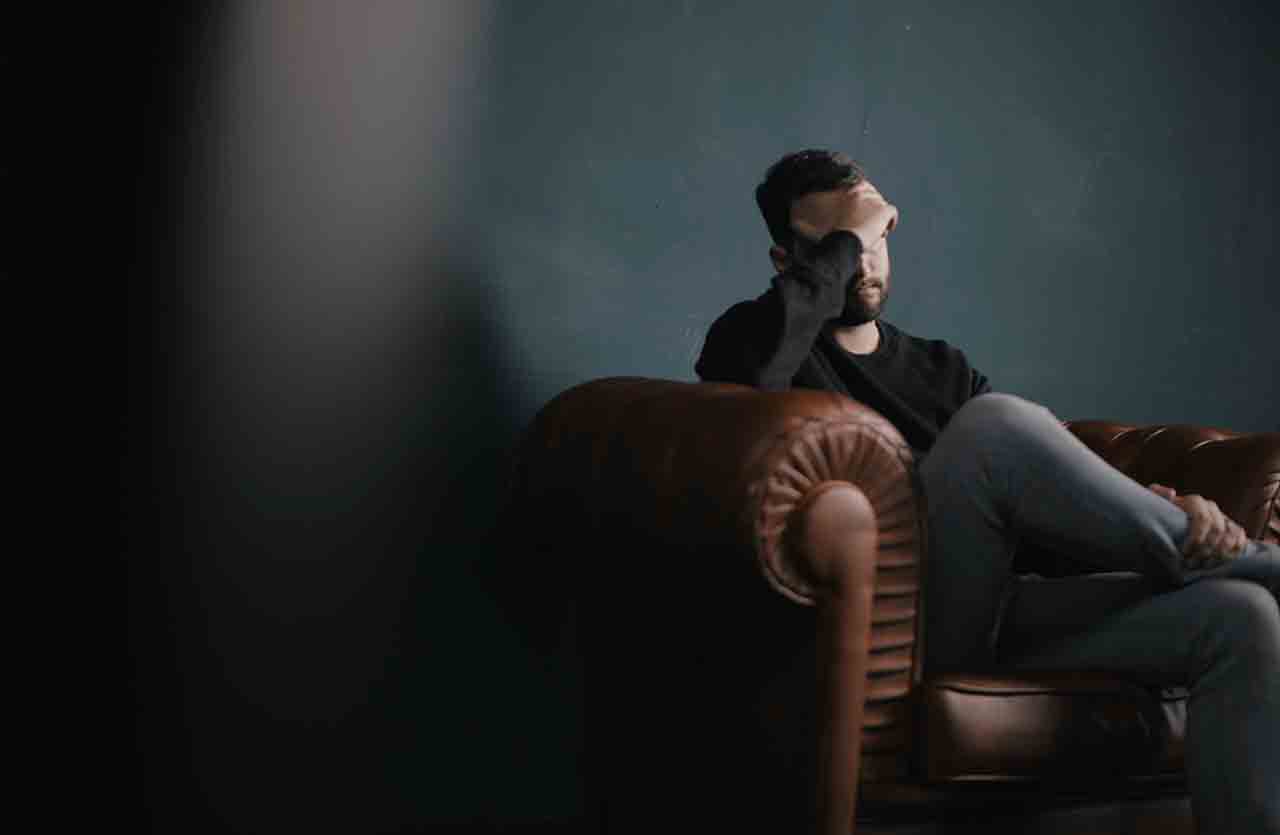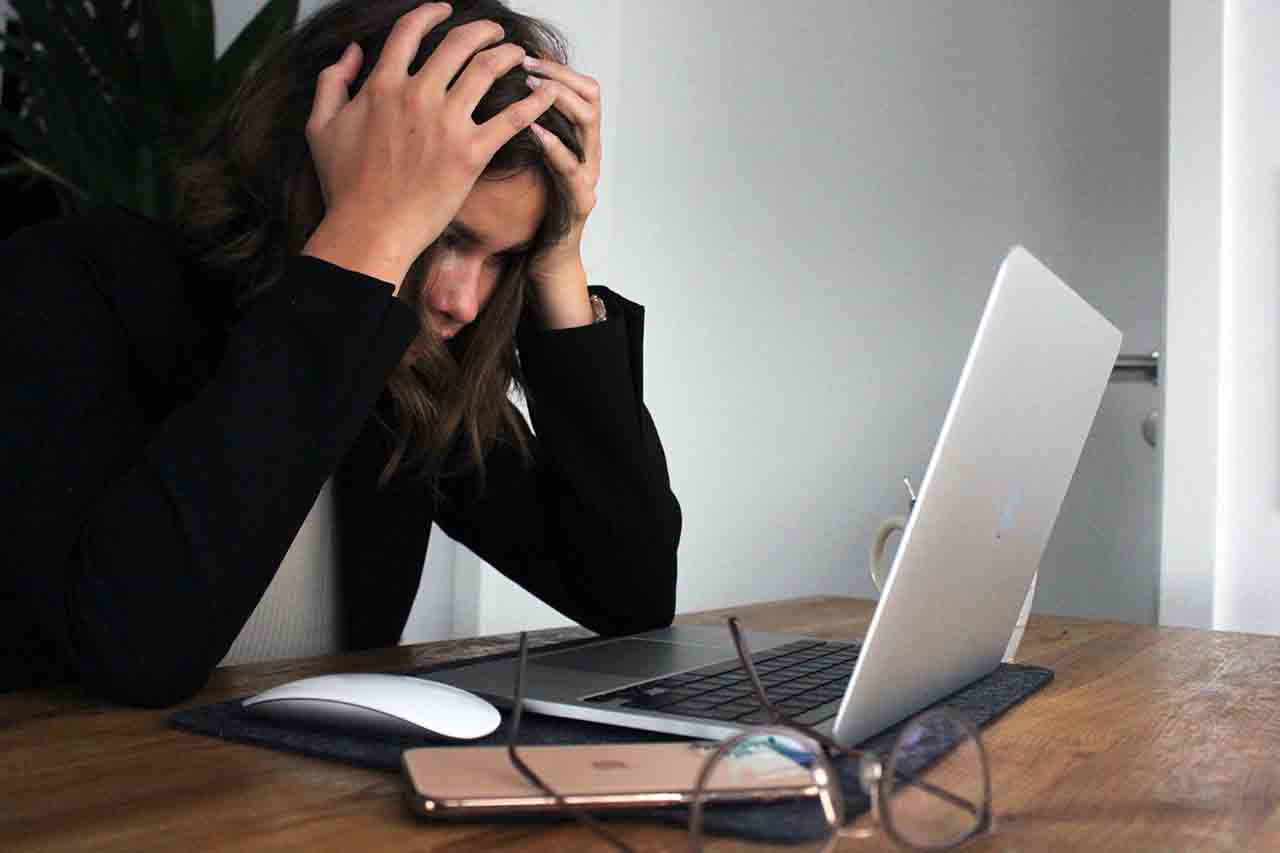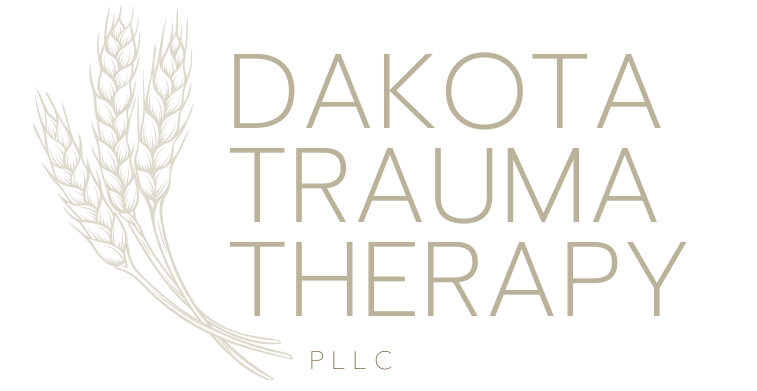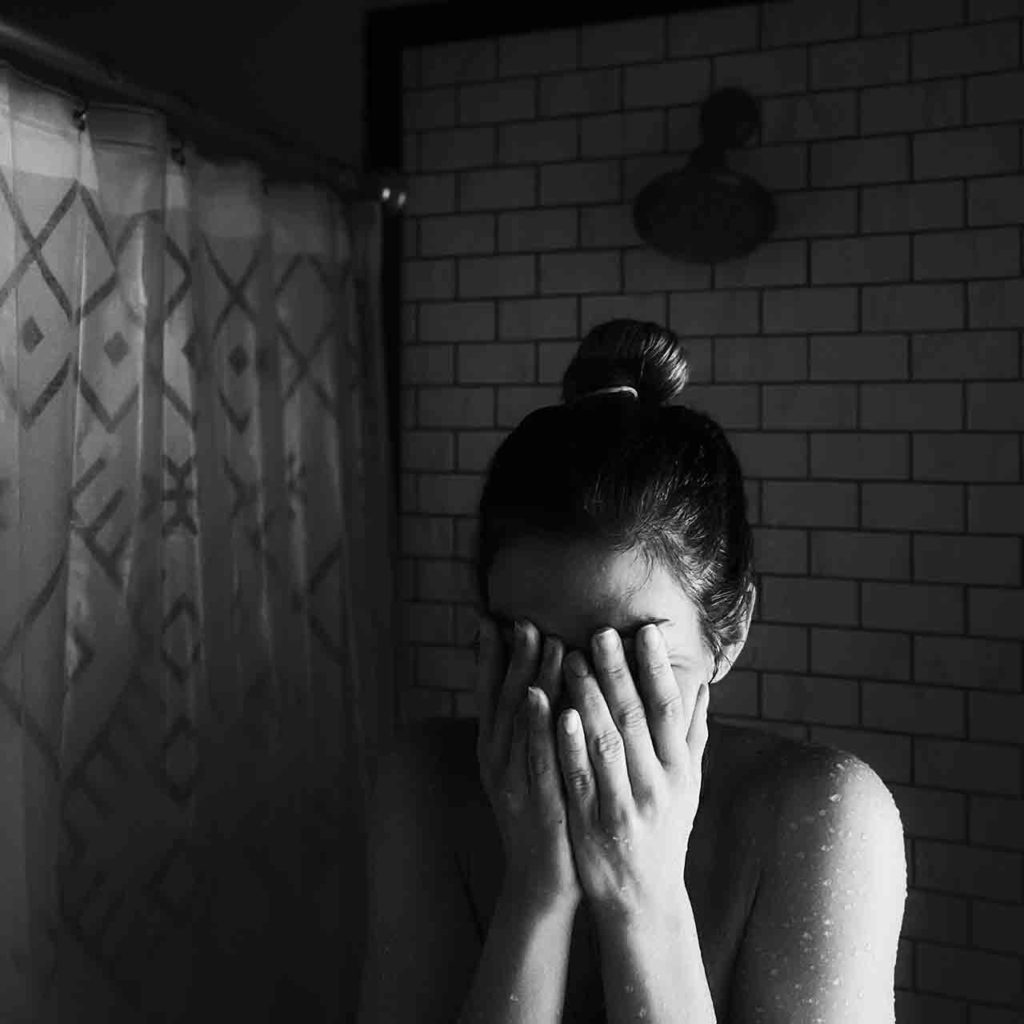Anxiety is a mental illness characterized by fear, excessive worry, intrusive thoughts, and a variety of physical symptoms. It is a frequent and inevitable part of life; however, treatment is required when this anxiety becomes high functioning anxiety or takes the form of a disorder that interferes with your daily life and prevents you from working well. (1)
While anxiety may be attributed to many aspects of life, there are a few factors that might increase or provoke anxiety. Identifying your specific triggers and devising a plan to handle them is the first step in managing anxiety.
Learning to recognize anxiety triggers might help you build coping skills for anxiety to control your anxiety and minimize panic attacks. If you experience anxiety, you are probably well aware that sometimes the trigger is evident, and other times your anxiety makes no sense and appears out of nowhere.
You are probably also aware that what makes you anxious differs from what makes someone else anxious. What causes anxiety in one person may not cause worry in another; thus, it is critical to understand and assess what may or may not cause anxiety in you.
Understanding the signs and causes of anxiety can be challenging, but it can help you manage what might otherwise be a crippling disease.
In this blog, we will look at some of the most frequent anxiety triggers, how to identify and manage them, and what treatment options are available.
What triggers anxiety?
Your anxiety may have no apparent trigger, but this is not always the reality. Rather, a lacking of self-awareness and the severity of the anxiety might obscure what came before it.
What causes anxiety is primarily determined by the sort of anxiety you have and the pressures you face in your life. Practices, life situations, and numerous pressures that feel out of your influence can all be anxiety triggers.
Anxiety symptoms such as tension, excessive concern, racing thoughts, agitation, impatience, and trouble concentrating might result from this. Anxiety triggers that are not handled can lead to panic attacks and other more severe symptoms and illnesses.
Let us have a look at some of the most prevalent anxiety triggers to control anxiety effectively.
Caffeine
Caffeine is at the top of the list because it can cause various effects, including anxiety. Caffeine can be a helpful tool for recharging our energies at any time of the day, but too much of it can work as a trigger for anxiety, either causing or exacerbating it. (2)
In little dosages, it can be beneficial, albeit tolerance levels differ from person to person. Caffeine overdose can be a trigger for certain people, making their anxiety worse.
According to research, people who have panic disorder and social anxiety are more vulnerable to the detrimental effects of too much caffeine. (3) Regardless of that, too much caffeine may harm anyone who suffers from anxiety. Fortunately, it is also a more simple trigger to manage by limiting your caffeine consumption.
A cluttered living space
A dirty home environment can cause or exacerbate anxiety, and this is not always linked to whether or not a person has obsessive-compulsive disorder (OCD). (4)
A cluttered home environment does not necessarily create tension or anxiety in people, but it may significantly impact the life of someone who suffers from anxiety. Consider analyzing your home surroundings if you suffer from anxiety. (5)
A messy house might be a problem since it is always on your mind and your to-do list. Mental to-do lists and procrastinating may also trigger anxiety, resulting in various symptoms such as insomnia, increased tension, decreased ability to focus, and more.
Not sleeping enough
Sleep deprivation is connected to mental and physical health disorders, including anxiety. The functioning of the brain and body are intertwined. Sleep deprivation, whether it is in the form of insufficient sleep or poor quality sleep, can significantly influence our mental well-being and temperament. (6)
Since our bodies and brains have not had enough rest, lack of sleep causes irritation, trouble focusing, and general tension, which are anxiety symptoms. Although staying awake later than usual on occasion is unlikely to cause an impact, continuous sleeplessness might increase anxiety symptoms in certain people. (7)
You can resolve this anxiety trigger efficiently by making slight modifications to your sleeping schedule and creating a healthy sleep routine.
Skipping meals
Eating well-balanced meals is essential for a variety of reasons. It gives you energy as well as essential nutrients. Your blood sugar may decrease if you skip meals, resulting in shaky hands and a grumbling stomach.
When you do not eat a well-balanced diet, your brain and body do not get the fuel to function correctly, leading to anxiety. Skipping meals can make us anxious because reducing blood sugar triggers our bodies’ fight or flight response, which is our natural anxiety reaction. (8)
Healthy snacks are an excellent method to prevent low blood sugar, anxiousness or agitation, and anxiety if you do not have time to eat three meals a day.
Health problems
Receiving an unexpected or unpleasant health diagnosis, especially if it is a chronic condition, can cause worry or exacerbate anxiety that already exists. Due to the evident direct and intimate sentiments it evokes, this sort of trigger is exceptionally potent. (9)
Anxiety is generally motivated by a fear of bad occurrences or a sensation of being out of control. A serious health condition can exacerbate these fears and increase anxiety levels.
Staying proactive and involved with your doctor might help alleviate anxiety caused by health difficulties. It may also be beneficial to speak with a therapist who can assist you in learning how to manage your thoughts in the wake of your illness.

Stressful work environment
The situations we find ourselves in might sometimes function as anxiety triggers. Responsibilities in the workplace frequently increase our stress and anxiety levels. Aside from professional obligations, the social element of a workplace may sometimes trigger anxiety, especially if it is a toxic work atmosphere where our minds and bodies do not feel comfortable lingering. (10)
While it is expected to occasionally experience work-related stress and anxiety, it is unusual to remain a regular aspect of the job for an extended period.
It may be more challenging to deal with this trigger because it can significantly impact your performance. If the workplace environment is stressing you out excessively or triggering your anxiety, it might be time to seek assistance to manage it effectively.
Conflict
Arguments and confrontations with a significant other, a friend, a family member, or a neighbour cause stress, triggering or aggravating anxiety. Relationship conflict can be especially anxiety-inducing and stressful if you are not used to dealing with conflict in a healthy manner or if you have negative ideas about the dispute. (11)
This anxiety trigger might be dealt with healthily. You may focus on improving your anxiety management while learning better conflict resolution techniques.
Performance
When we are in a place to be seen, assessed, and discarded by others, public speaking, making a presentation at work, or participating in a competition can all induce performance anxiety and stage fright. (12)
In fact, according to some estimates, up to 77% of people suffer from anxiety associated with public speaking, making it a very prevalent anxiety trigger. (13)
If your profession or hobbies demand it, your doctor or counselor can help you find strategies to feel more at ease in these situations. Propranolol for anxiety is commonly prescribed in such situations to help people relax quickly. Positive feedback from friends and coworkers can also make you feel more at ease and assured.
Financial crisis
Your income is frequently linked to stress. It is logical that financial pressure might cause or increase anxiety, given that money is a significant necessity.
Finances generate anxiety for certain people, regardless of social standings. Savings, debt, and unexpected expenses are all examples of financial anxieties. Financial issues can generate anxiety since they also stimulate our survival instincts, which decide whether we can satisfy our requirements. (14)
While this may appear to be a more difficult anxiety trigger, sitting down and making a strategy may be surprisingly beneficial. Many people find that having a plan may considerably lessen their anxiety, even if it is only a simple one.
Major changes in life
Anxiety can be triggered or increased when a significant life change occurs, especially if it is unanticipated. Becoming a parent, losing a family member, or starting a new career are all examples of life changes. Accepting new duties and some degree of adjustment to a different identity can all affect anxiety levels. (15)
Pessimistic thinking
Our thinking controls our body, and anxiety is no exception. If we are used to talking negatively to ourselves, our thinking habits can significantly impact our mental health. It can be a source of worry and anxiety symptoms and a crucial source in keeping anxiety at bay. (16)
Attempting to redirect your language and sentiments when you first start down this route is beneficial if you usually use a lot of negative phrases while thinking about yourself.
Exams
Exam results significantly impact our final grades, program admittance, and professional growth. It is natural to get into a negative thought pattern about test results since our brain interprets exams and examinations as key performance opportunities. Pessimistic reasoning and stress can both generate and heighten anxiety. (17)
A lack of preparation can also trigger this type of anxiety. It can also happen due to a person’s dread of failure. This anxiety is frequently fueled by a strong desire to succeed.

Social gatherings
For some people, attending social gatherings may be energizing, but these events can be draining for those who suffer from social anxiety, these events can be draining.
Some people are born without the social skills required to deal with social situations, and they may be anxious about what other people think of them while they are there. Fear of being criticized can worsen anxiety and make it more challenging to participate in and engage in social situations. (18)
When feasible, bring a partner with you to assist in calming your anxiety. However, working with a professional to develop coping skills that make these occurrences more tolerable in the long run is beneficial.
Personal triggers
Personal triggers might be challenging to detect, but they frequently cause you to recall a stressful or unpleasant incident from your life. Pictures, sounds, scents, places, or feelings can all be included in personal triggers. These remind you of a painful memory or traumatic experience in your life, whether consciously or unintentionally—people who have post-traumatic stress disorder (PTSD) experience it the most.
How to identify anxiety triggers?
You can strive to avoid and manage your triggers if you recognize them.
Here are some pointers on how to spot triggers:
Keep a journal
Note down in your journal when you start to feel anxious and what you believe could have triggered it. Some digital applications might also help you keep a record of your anxiety. This record can help you identify the possible triggers of your anxiety.
Be true to yourself
Anxiety can lead to negative thoughts and low self-worth. Finding triggers may be difficult due to the anxious feelings. Be kind to yourself and willing to go into your past to understand how it could be influencing you now.
Consider past experiences
Anxiety can also be triggered by past trauma. Evaluate how bad events from the past may still be impacting you currently.
Know the significant life stressors
Relationship problems, job loss or change, pregnancy, or the death of a loved one are all instances of significant life stressors that can lead to anxiety. Take into account any current stresses that may be adding to your anxiousness.
Consult a therapist
Some anxiety causes are difficult to recognize, but a mental health professional can assist you. They may employ talk therapy, various assignments, or other approaches to locate triggers.

How to cope with anxiety triggers?
After identifying your anxiety triggers, you will need to figure out which ones you can control. Making a plan to limit the number of times you are confronted with triggers will help you feel less anxious.
Anxiety triggers may be dealt with in several ways, including the following:
Self-care
Improving your physical well-being will reduce the chances of your physical health triggering and exacerbating anxiety. Getting adequate exercise, eating a well-balanced and regularly-timed meal, staying hydrated, reducing caffeine, and maintaining sound sleep can help you feel better physically and mentally.
Consume less social media
Comparing oneself to others can lead to negative thought patterns on social media. Limiting or interacting with social media in a more aware manner may assist you in recognising and preventing problematic thought patterns before they begin.
Meditation and yoga
Meditation is the practice of focusing on the current moment rather than allowing our minds to wander into problematic thinking patterns, which is a crucial contributor to anxiety. Yoga is a natural anxiety treatment strategy since it helps to link our mind and body in a tranquil and soothing way. These practices can assist you in becoming used to behaving in opposite to what anxiety urges you to.
Think positive
Positive self-talk and positive thinking may significantly affect health and attitude. Allowing oneself to let go of competitiveness, negative preconceptions, and harshly characterizing ourselves relieves tension and anxiety.
Plan things wisely
Forming a strategy may help you feel more in charge of handling a problem, whether it is associated with financial management, studying for an exam, or surviving social settings. By giving you the idea that you have control over the issue, reducing your sense of helplessness might help you feel less anxious.
Treatment for anxiety
Fortunately, you may manage anxiety with a combination of expert assistance and self-care. The sort of treatment a person receives for coping with anxiety triggers is determined by the nature and degree of their anxiety and the underlying reasons. Effective treatment options for anxiety include:
Psychotherapy
Cognitive-behavioral therapy (CBT) and occupational therapy are two of the most effective psychotherapy options that can help people better detect anxious thoughts and adjust their behavior patterns in order to manage anxiety more successfully. (19)
Medication
Anxiety can be effectively treated with a variety of medications. Benzodiazepines, antidepressants, antipsychotics, and buspirone are all examples of it, and they can all aid with anxiety symptoms. (20)
Systematic desensitization
Systematic desensitization is gradually subjecting a person to an anxiety trigger point until they get habituated to it. (21) This method should be carried out by a certified mental health practitioner who has been educated in the safe desensitization of anxiety.

Conclusion
Trying to cope with and control your general anxiety requires a clear understanding of your anxiety triggers. Anxiety may be a terrible and frustrating problem, but strategies and specialists are available to encourage and assist you.
You should get treatment if your anxiety is interfering with your daily life. A mental health professional can assist you in developing a treatment plan that can alleviate your symptoms and help you manage anxiety triggers.

